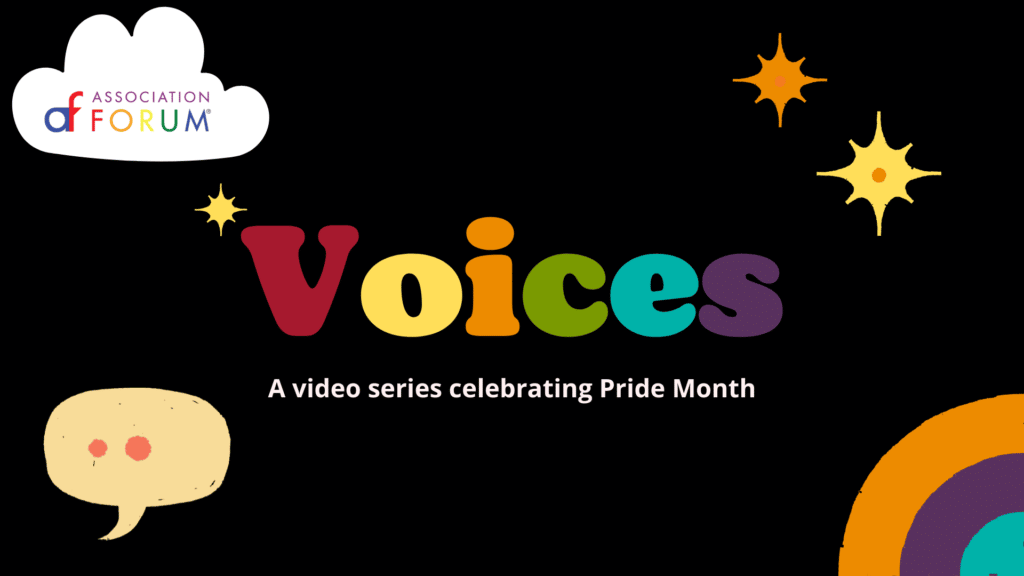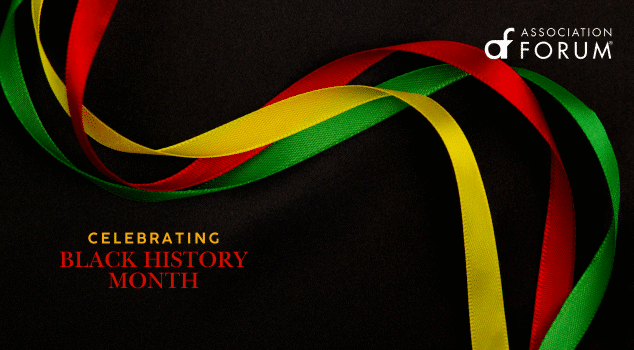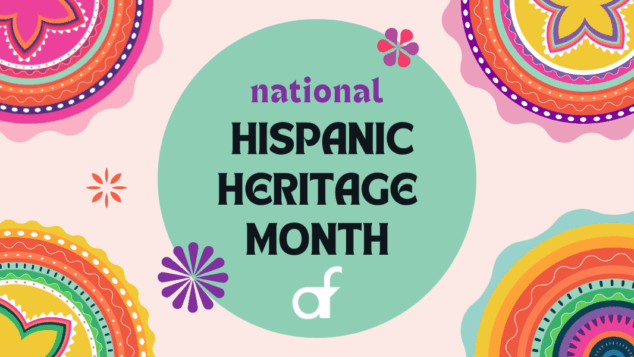VOICES: Kari Zick on Lifting Up Future Generations

Association Forum’s LGBTQ+ Advisory Group presents a series of videos to celebrate and reflect upon Pride Month. Over the course of the month, we’ve spoken with members of the association community and ask them what Pride Month means to them. Kari Zick is the component relations manager for the Emergency Nurses Association. She has worked at ENA for 25 years. In this video, she speaks with Association Forum CEO Artesha Moore about what Pride Month means to her and how we can all continue to learn and inspire young people trying to find their own gender identities during this time. Click here to see all the videos in this series!
Below is a transcript of the conversation:
Artesha Moore: Hello, I’m Artesha Moore and I’m President and CEO of Association Forum, and today we have with us, Kari Zick. I’m going to ask Carrie to introduce herself.
Kari Zick: Hi, Kari Zick. I am the Component Relations Manager for the Emergency Nurses Association. I’ve been with the organization for almost 25 years. I am a member of the ASAE and the Association Forum. What else about myself? I have two children. I have a 32 year old and an 18 year old on her way to college.
Artesha Moore: Wow. That’s exciting. And as a mom and an active member and working in association management for 25 years, and I’m sure you’ve seen a lot of change, and especially as it relates to what we’re here to talk about today. First I would like you to start with, what does Pride mean to you? And then we’ll talk about maybe some changes we’ve seen over the decades.
Kari Zick: Sure. It’s a really good question. For me, Pride is about celebrating unity, whether you’re gay, straight, bi, Black or brown, trans, or anything in between, it’s really about coming together in love, acceptance and friendship. I also want to point out that during Pride there’s a lot of parties, parades, dancing, glitter, fun and celebrating how far we’ve come, but not losing sight that there still is work to do.
I also want to talk about the younger generation of the LGBTQIA+ community, trying to get myself used to all the letters, and educate myself in that way. Some of the struggles for many of them they have with their identity and being accepted and loved just as they are. Pride month is the celebrations and the parades and it’s their time along with everyone else to have a little taste of what that acceptance and what that freedom feels like.
A fun, good story. I went to a Pride parade in the city in Chicago with my daughter a few years ago, and it was her first time. She’s been begging me to take her, and I go every now and then. I hadn’t been for a long time. And just walking around with her and she was just in awe and proud and excited to see everyone, all walks of life, just being free and her being free herself as an ally. So Pride parades never disappoint that’s for sure. Very good time, so I highly recommend.
Artesha Moore: Yeah, Kari, I love that and I think that in some aspect, the way that you come into, whether I’m an ally or whether you’re within the community, in some aspect, the parade and the mounting of the party is an entry point to learning. And really around that deeper acceptance and unity, is really something beautiful, and then I love how you touched on the next generation, because as we look at our work, and you in components, and really look at the Emergency Nursing Association, our work is future focused. It is around really engaging that next generation of leaders, bringing them in, and so I love how, in your example, you gave that access point for your daughter and then that really led for her awe, and the pride in that, so thank you for sharing that, because that’s important.
Kari Zick: Yeah. And lastly, just simply put, Pride is also just being who I am, and celebrating myself as an out lesbian. So I just wanted to add that to that whole point of what Pride means to me, so I don’t want to forget about me.
Artesha Moore: That’s exactly right and I think that’s a beautiful segue into the other question that I do have around that, because it is important and, right now more than ever, for all of us to bring our whole selves forward, and in our industry of association management, that hasn’t always been the case. So as I think about where we are right now and what we could do for the future, how can the association industry lean in and be more inclusive?
Kari Zick: Well, like I mentioned, I’ve been with my organization for almost 25 years, and during that time, I’ve had the privilege of being an out lesbian with no issue from the day I started. The space in my organization, the space they provide makes me feel seen, accepted, included and safe, most of all. I never felt anything but acceptance and supportive and it’s something easily taken for granted, especially knowing there are so many that don’t share that the same privilege that I have with my group.
As far as inclusion and more that associations can do, I feel like associations should ensure that inclusivity is part of its core values, number one. Also, if they can showcase employees by giving the platform to allow them to have conversations about differences, backgrounds and experiences, and I’m seeing a lot more of the use of pronouns, which is great, strongly encourage that, allowing a safe environment for trans employees. And simply just make it known that the organization supports the LGBTQIA employees and the community as a whole. That captures it all in a nutshell.
Artesha Moore: Yeah. I think that is really great advice for us in leadership positions. And leadership isn’t just CEOs like myself, it’s at all levels, right? Because I think that you talked about things that I heard in that, threads of what your organization did for psychological safety, so that you can show up where you are. Being able to really identify things like use of pronouns so that we can ask questions about things. I know that when that started in my previous organization a few years ago, it made me ask questions, to really…
I was lucky to be able to be in places where people were forthcoming with information, but it was the signal that this was a little bit different, so let me ask, when they said they, how do I communicate, when we are used to driving with pronouns. “Well, Kari, she said…” How do I now communicate in that way? I think, for all of us, as we look in associations, and again, with that future focus, how that looks to really also be curious and inquisitive so that we can support each other to bring their whole selves forward.
Kari Zick: Yeah. It’s about educating too. I have been a lesbian for a long time and I’m not an expert in gayism, so I’m always trying to learn, understand all of the inclusivity, and the different, what the pronouns mean, and what the acronym truly means and ask questions. If you don’t know, ask. If you don’t know, research and make it comfortable and safe to be able to discuss that. Another thing too, just to think about, is when you’re talking about safety and psychological safety, I’d like to think about the medical insurance plans and things that are offered to employees and to consider what coverage is available for some of the transsexuals that are going through change and things like that. And just making sure that medical plan covers the needs for these communities and for these people.
Artesha Moore: You know Kari, that’s really powerful and thank you for saying that, because in some aspect, again, as employers, it’s important for us to look not just on the surface, our value statements, but really in our actions, how we show up, how we live, what we say we believe and what we value. So that brings me to my last question, because the folks for me that really value, walk the walk, not just talk the talk, but really fight the fight, they become my heroes, right? The folks that I look back to, to say, when I need strength, or when I’m looking for inspiration. So from your perspective, who do you admire and look up to? Who are your heroes?
Kari Zick: That’s a really tough question. I could probably spend quite a bit of time naming and thinking of people, but I think I’m going to narrow it down to a group of people and be remiss if I did not recognize some of my main heroes. Coming from the Emergency Nurses Association, I would have to say, emergency nurses are heroes to me. I look up to them. I value them. They are the front line when you walk through the emergency department, as soon as you walk into the hospital. They see everything, they treat everyone with respect and the things that they experience and deal with on a daily basis, it’s just, it’s amazing to me. I’ve always been fascinated by that and I would have to say that would be who I would recognize today as my hero and who I look up to.
Artesha Moore: A few years back, I had a medical issue. I’m fine. Everything’s great. But it was the emergency room nurse who gave me comfort in that panicky time. She was like, “Okay, we’re going to get through this. We’re going to get you some ice. We’re going to get through this,” so thank you for mentioning that because when you are in a profession, and you are serving that profession, that gives so much, even when they don’t always get refueled, it’s so important. And they give us a lot of heroic lessons to aspire to be in our daily work, so thank you for bringing that up.
Kari Zick: Yeah. I don’t know if it’s any one person to really also recognize. It’s, again, as I mentioned, our up and coming generation, for those that are brave enough to just come out as to whoever they are. I mean, that’s a huge thing to look up to. It’s very brave, especially in this day and age. There’s a lot going on in this world, so I applaud that to people who come out and embrace who they are. It’s not a very easy thing to do and to just walk that walk. A lot of people that are scared to do that. A lot of teens that just won’t do it because they’re afraid, so for those that come out and be proud, I applaud that.
Artesha Moore: Okay. And Kari, I will say, as I wrap this up here, it takes leaders like yourself to make it feel okay for others to show up as themselves, so thank you. Thank you for spending this time-
Kari Zick: Thank you for having me.
Artesha Moore: Thank you for being with us today and sharing these nuggets and advice to help the next generation and the current generation continue to aspire to create safety so that everyone can show up and be who they are.
Kari Zick: Well, thank you for having me. It’s been an absolute pleasure.
Tags
Related Articles
BAE Chicagoland Kicks Off: Join the Movement!
Black Association Executives (BAE) is officially in Chicagoland, bringing a bold new community to Black...
Celebrating Hispanic Heritage Month with Association Latinos
How to celebrate Hispanic Heritage Month within the association community and Chicago!
Tips for Creating a Welcoming Meeting Environment
Creating a truly inclusive annual meeting means going beyond ADA compliance—discover how one association builds...







